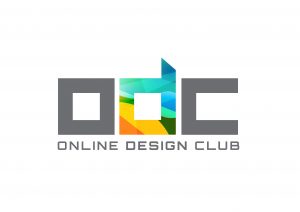- October 14, 2023
- Posted by: Design Team
- Category: Logo Design

The Power of Brand Values
As new business owners embark on the journey of creating a unique brand image, the importance of brand values cannot be overstated. These values play a critical role in defining a brand’s identity, guiding business strategies, and building strong connections with the target audience.
What are Brand Values?
In essence, brand values are the core principles that guide a business’s actions, behaviors, and decision-making processes. They are the beliefs that a brand stands for, and they shape the brand’s character and personality.
Brand values are not merely words or phrases; they are the fundamental ethos that permeates every aspect of a business, from brand naming and logo design to brand messaging and marketing strategies.
In a practical sense, brand values might include principles like “innovation,” “quality,” “sustainability,” or “customer service.” However, the specific values will vary widely depending on the nature of the business, the industry it operates in, and the vision of its leadership.
Why are Brand Values Important?
Brand values are the foundation of a strong brand identity. They help to distinguish a brand from its competitors, create a unique personality, and attract customers who share similar values.
Consistency: Brand values provide a roadmap for consistency across all business operations and communication efforts. This consistency helps to build trust and credibility with customers, leading to long-term loyalty.
Connection: Brand values help to foster a deep connection with customers. When customers identify with a brand’s values, they are more likely to become loyal supporters and even brand ambassadors.
Direction: Brand values guide decision-making processes, from product development to marketing strategies. They help businesses to stay focused on their mission and vision, ensuring that all actions align with their core principles.
Differentiation: In a crowded marketplace, brand values help to set a business apart from its competitors. They define what a brand stands for and what makes it unique.
In a nutshell, brand values play a pivotal role in business success. They are the backbone of a strong brand identity, influencing everything from logo symbolism to brand voice and brand experience. Therefore, it’s crucial for new business owners to invest time and effort in defining and communicating their brand values effectively.
Establishing Your Brand Values
As we delve into the process of establishing brand values, it’s essential to understand that these act as the guiding principles for your business. They help define your company’s identity and set you apart from your competitors.
Identifying Your Brand’s Core Values
The first step in establishing your brand values is identifying what you stand for as a business. These should be the core principles that guide your business decisions and shape your company culture.
For example, do you prioritize innovation and creativity? Or perhaps your focus lies in sustainability and environmental responsibility? Whatever your core values may be, they should reflect your company’s mission, vision, and ethos.
To identify your brand’s core values, consider what’s truly important to your business. Reflect on your company’s mission and vision, and think about the values that align with these elements.
Here are some common brand values:
| Brand Value | Description |
|---|---|
| Innovation | Emphasizes creating new ideas and leading change |
| Quality | Committed to providing high-quality products or services |
| Integrity | Acts with honesty and honor without compromising the truth |
| Sustainability | Prioritizes eco-friendly practices and policies |
| Customer-centric | Puts the needs and satisfaction of customers first |
Once you’ve identified your core values, it’s crucial to ensure they’re incorporated into every aspect of your business, from your logo design to your marketing strategy.
Aligning Your Values with Your Business Goals
After identifying your core values, the next step is to align these with your business goals. This alignment ensures that your brand values aren’t just abstract concepts but are actively guiding your business towards its objectives.
For instance, if one of your core values is innovation, one of your business goals could be to release a new product every year. If your core value is sustainability, a business goal could be to reduce your company’s carbon footprint by a certain percentage within a set timeframe.
Aligning your values with your business goals not only helps guide your decision-making process but also provides a clear message to your customers about what they can expect from your brand. This alignment is a critical component of your brand strategy, helping to build trust and loyalty among your customer base.
Remember, your brand values are more than just words on a page. They should be the principles that guide your business decisions and shape your company culture. By identifying and aligning your brand values with your business goals, you can create a strong brand identity that resonates with your target audience and sets you apart from your competitors.
The Role of Brand Values in Logo Design
When it comes to establishing a strong brand, one of the most prominent elements is the logo. Your logo is often the first point of contact potential customers have with your brand, and it plays a vital role in conveying your brand values.
Conveying Your Values through Design
Your logo is more than just an attractive image; it’s a visual representation of your brand’s identity and values. When we design a logo, we aim to incorporate those values and beliefs into the design itself. This can be achieved through various elements, such as color, typography, and imagery.
For instance, if one of your brand values is innovation, you might opt for a modern, minimalist design with a unique twist. On the other hand, if your brand values tradition and reliability, a more classic and timeless design might be more appropriate.
To learn more about how different design elements can embody your brand values, check out our article on logo design.
Making a Strong First Impression
The importance of a well-designed logo cannot be understated. It’s the visual cornerstone of your brand, and it’s often the first thing people notice about your business. A well-designed logo that accurately reflects your brand values can help you make a strong first impression, attract the right audience, and build brand loyalty.
Remember, your logo will be present on all your marketing materials, from your website to your business cards, so it’s crucial that it communicates exactly what your brand stands for. It’s not just about creating a visually appealing design; it’s about creating a logo that resonates with your target audience and aligns with your brand values.
For further inspiration and guidance on creating a logo that accurately reflects your brand values, refer to our article on logo inspiration.
In conclusion, the role of brand values in logo design is paramount. By effectively conveying your brand values through your logo design, you can communicate your brand’s identity to your audience, make a strong first impression, and lay the foundation for a successful brand.
Infusing Brand Values into Your Marketing Strategy
Now that you’ve established your brand values, it’s time to incorporate these into your marketing strategy. This involves creating consistent messaging and building a community around shared values.
Consistent Messaging
One of the key elements of successful branding is consistent messaging. This means that all your communication, whether it’s your website content, social media posts, or email newsletters, should reflect your brand values.
In practice, this could mean highlighting your commitment to sustainability in your brand messaging, or showcasing your focus on innovation in your brand advertising. The goal is to ensure that your audience can easily identify what your brand stands for, no matter where they encounter your brand.
Consistency in messaging not only strengthens your brand identity, but it also builds trust and credibility with your audience. When your audience sees that your actions align with your words, they’re more likely to trust your brand and form a meaningful connection with it.
Building a Community around Shared Values
Your brand values can also serve as a powerful tool for building a community. By promoting your values, you attract customers who share these values, fostering a sense of connection and loyalty.
You can build this community in various ways, such as through social media engagement, customer testimonials, and user-generated content. For instance, if one of your brand values is creativity, you could run a social media campaign encouraging your followers to share their own creative ideas or projects.
Building a community around shared values not only helps to increase brand loyalty, but it also turns your customers into brand advocates. These individuals can help spread the word about your brand, extending your reach and influence.
Remember, your brand values are more than just words on a page. They’re the essence of your brand and should be infused into every aspect of your business, from your logo design to your marketing strategy. By doing so, you’ll create a strong, authentic brand that resonates with your audience and stands the test of time.
Ensuring Brand Value Alignment
Maintaining alignment with your brand values is pivotal to the success of your business. This involves regular review and adaptation as your business evolves.
Regularly Reviewing Your Values
We cannot stress enough the importance of continuously revisiting your brand values. This doesn’t mean changing them frequently, but rather reassessing to ensure they still align with your business’s current state and aspirations.
Regular reviews allow us to gauge if our actions and decisions are still in line with our values. This is important for maintaining consistency, which is key to building a strong, recognizable brand. For instance, if one of your brand values is sustainability, regular reviews might involve assessing your business practices to ensure they remain environmentally friendly. You might also evaluate your brand messaging to ensure it consistently communicates your commitment to sustainability.
Adapting Values as Your Business Grows
As your business evolves, it may become necessary to adjust your brand values. This is not about abandoning your core principles, but rather refining them to better fit your brand’s growth and development.
For instance, a small business that initially focused on local community engagement may expand its scope as it grows, incorporating broader societal issues into its brand values. In such a scenario, the core value of community engagement remains, but its application has adapted to the business’s current scale.
It’s essential to handle such adaptations strategically and thoughtfully, keeping your audience and their values in mind. Remember, your brand values should resonate with your target audience, contributing to a strong brand experience.
Moreover, as your business expands and diversifies, you may need to create sub-brands or brand extensions. In such cases, make sure these new entities align with your overall brand values. For more on this, check out our article on brand extension.
In conclusion, ensuring brand value alignment is a continuous process that involves constant review and thoughtful adaptation as your business evolves. By maintaining alignment with your brand values, you can create a brand that stands the test of time, resonates with your audience, and ultimately, drives your business success.

